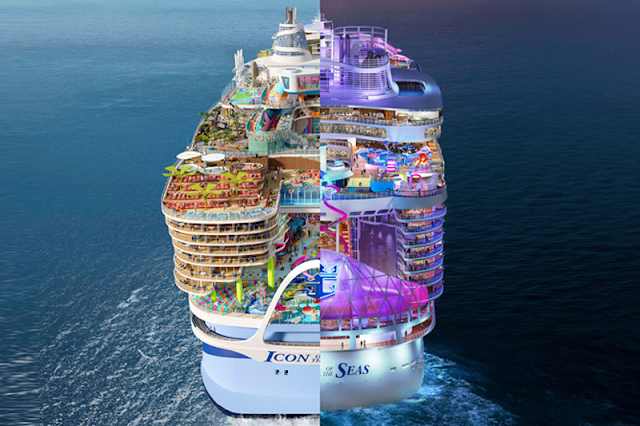MSC Cruises is aggressively building up its global exposure through sponsorships of sports, including auto racing, soccer and basketball, in addition to the more traditional sales and marketing channels.
Comparing the cruise line to the worldwide Formula 1 racing series, Gianni Onorato, CEO of MSC Cruises, said: “We share common goals; we are focused on sustainability and driving new technologies, while also being in the entertainment business. F1 allows us to deliver our brand message across the world.
“This fits with our other sports sponsorships, such as the well-known soccer brands Paris Saint-Germain and Chelsea, and in basketball, the New York Knicks, which is drawing record spectator and (TV) viewer numbers.
“These sponsorships give us a high and positive visibility across the globe and in key markets,” Onorato added.
Showcasing MSC Cruises’ product this summer is the new 181,500-ton, 4,888-passenger (double occupancy) Euribia, built by Chantiers de l’Atlantique.
Onorato described the Euribia as the most environmentally sustainable cruise ship ever built and as for the new hull livery, he explained: “What is most important is not the decoration itself, but the message it sends with the hashtag ‘save the sea.’ Our assignment to the artist was to interpret our love of the sea and the need to care for and protect the sea.”
Built to run on LNG, the Euribia used biofuel on her first sailing, however, which meant net-zero greenhouse gas emissions, according to Onorato.
“The Euribia will allow us to sail in the heritage fjords of Norway,” he continued. “She will give us access to regions that in the future will become more restricted. In addition, our customers are also looking for a ship like this that is more environmentally oriented. I think that more and more sustainability will be a driver in people’s choice of holidays.”
The new ship is also fitted for shore power connection and will be dedicated to Northern Europe during its first year of operation.
Onboard features are shared with other ships of the same platform, Onorato said, noting that these have been fine-tuned. “Every time we introduce a new ship we work to improve and perfect certain aspects,” he said. “Thus, we have focused a lot on the entertainment and have three new shows on board as well as speciality restaurants ranging from Japanese to French and Italian cuisines, and bars similar to what you will find in high-end European destinations.”
Meanwhile, MSC continues to invest in new technologies like dual-fuel engines and systems to run on LNG, while also testing fuel cells, Onorato explained.
“For our legacy ships, we see non-fossil fuels as the solution, you can call it biofuels or synthetic fuels. And while our new ships run on LNG, longer-term solutions may also include hydrogen.
“We will do the necessary modifications to our ships so they will be ready to burn new fuels whenever these become available on a large scale.”
The clear target is net zero emissions across the entire fleet by 2050. Meanwhile, a target is to reach 40 per cent carbon intensity reduction by 2030, compared to 2008, is on track and already MSC Cruises is at 33 per cent, according to Onorato
“We believe the cruise market will continue to grow, and we are committed to maintaining our own leading position,” he said. “Our goal is not necessarily to be bigger than the other major brands, but to have our piece of the cake if I can put it that way.
“How far we will grow will be determined by our customers. What I can say is that we had 2.7 million passengers in 2019 and are on track to reach 4.2 million this year. So that means our customers love us.”
Photos: Gianni Onorato; MSC Euribia (Credit: Oceanliner Photos)
Excerpt from the Cruise Industry News Quarterly Magazine Summer 2023

















